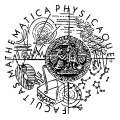Seminar programme will be consequently updated. Guests are welcomed.
-
Reflections on risk and dynamics in stochastic programming models. + upřesnění dalšího programu
- Author:
- Prof. RNDr. Jitka Dupačová, DrSc.
- Date:
- 28th February 2008
-
Risk-Sensitive Control of Markov Chains and its Application to Portfolio Management.
- Author:
- Ing. Karel Sladký (ÚTIA)
- Date:
- 13th March 2008
-
Actual stochastic programming problems.
- Author:
- Mgr. Martin Branda
- Date:
- 20th March 2008
-
The rate of convergence - generalization.
- Author:
- RNDr. Vlasta Kaňková
- Date:
- 27th March 2008
-
Stochastic approximation in stochastic programming.
- Author:
- Prof. RNDr. Václav Dupač, DrSc.
- Date:
- 10th April 2008
-
Thesis.
- Author:
- RNDr. Jana Čerbáková
- Date:
- 24th April 2008
-
Stochastic programming with random rightside vector - the minimax approach.
- Author:
- Pavel Kříž
- Date:
- 15th May 2008
-
... will be specified ...
- Author:
- Prof. David Morton (USA)
- Date:
- 22nd May 2008
- Abstract:
Stochastic programming facilitates decision making under uncertainty. Unfortunately, it is usually impractical to find an optimal solution to a stochastic program. Confidence intervals on the optimal value, or optimal gap of a candidate solution, can be obtained using Monte Carlo approximations. However, the standard point estimate of the optimal value, or optimality gap, contains bias due to the nature of the sampling-based approximation. We provide a method to reduce this bias, and hence provide a better, i.e., tighter, confidence interval on the optimal value or a candidate solution's optimality gap. Our method requires less restrictive assumptions on the structure of the bias than previously-available estimators, and we establish desirable statistical properties of our estimators. Our estimators adapt to problem-specific properties, and we provide a family of estimators, which allows flexibility in choosing the level of aggressiveness for bias reduction. We compare our estimators with known techniques on test problems from the literature.

